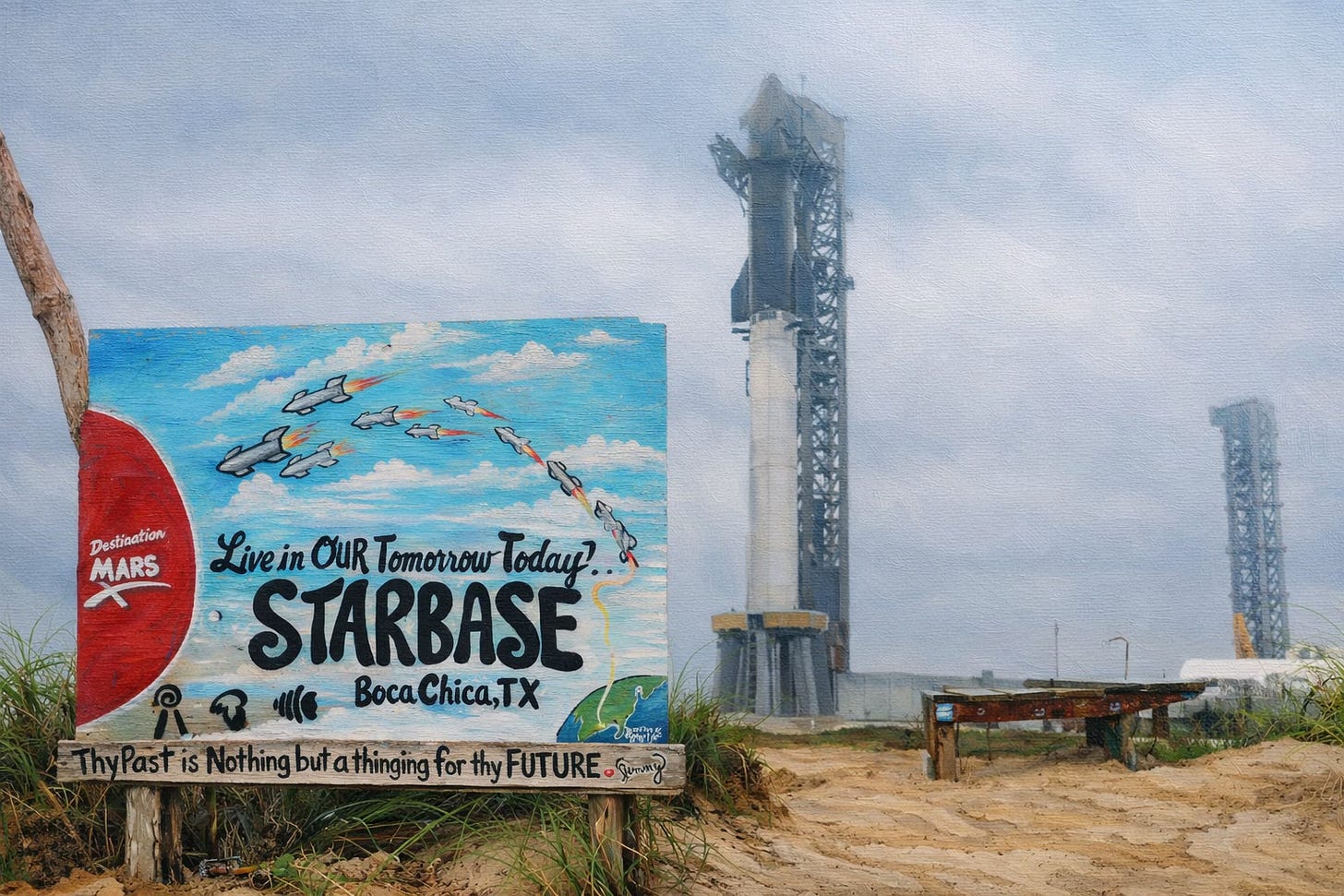Follow the Money (It Leads to Musk)
Blacked-out pages, one billionaire, and the end of Texas transparency.
Every good corruption story has a moment when the truth becomes obvious.
That moment came November 19 when Texas released 1,400 pages of emails between Governor Greg Abbott and Elon Musk. About 1,200 were blacked out completely.
Happy hour invitations made it through. Committee schedules, sure. Anything involving actual governance? Disappeared.
Abbott’s public information coordinator explained the redactions were necessary because the material was intimate and embarrassing and not of legitimate concern to the public.
Intimate.
A governor’s commercial dealings with a billionaire oligarch gets the same privacy shield as medical records or sexual assault allegations. One attorney put it plainly: the fact that a governmental body can redact more than 1,000 pages directly related to a major business’s activities in Texas is certainly problematic.
This didn’t happen in a vacuum. Boeing v. Paxton in 2015 opened every door.
Before that ruling, companies claiming trade secrets had to prove releasing information would cause serious harm. The court threw that requirement out. Now corporations whisper competitive advantage and government scrambles to comply. Since 2015, courts cited Boeing over 1,850 times to block public records.
State Senator Kirk Watson nailed it: Boeing can land one of its big ol’ airplanes in the middle of this thing.
The plane’s parked. Everyone’s pretending.
SpaceX’s lawyers claimed the emails contained information whose disclosure would cause substantial competitive harm. Abbott’s office filed the same argument in slightly different words. That’s the machinery: government outsources its secrecy justification to the corporation. Both sides protected. Nobody answers questions.
Ken Paxton, the Attorney General supposedly arbitrating these disputes, operates in the same political ecosystem as Abbott and Musk. When Abbott asks if he can hide records, he’s basically asking a political ally who happens to wear a badge.
To understand what those redacted pages might contain, look at what Musk did to reach this position.
Years ago Musk showed up at the Texas Capitol in a dark suit. He needed state law changed so Tesla could sell cars directly. The dealership lobby had killed every attempt. He told the committee he would fail without it. For us, it’s a matter of life or death.
They didn’t listen. The bill died.
By 2020 he was relocating his entire operation to Texas. Abbott tweeted like a man in love. Gigafactory in Austin. Starbase down south. These weren’t just factories. They were anchors. The state became dependent on Musk staying happy.
Checks started arriving. $17.3 million from the Semiconductor Innovation Fund. Starlink received the second-largest grant in the fund’s history.
By 2025 the supplicant had transformed into something else. The correspondence between them suggests a relationship that had fundamentally changed.
The 2025 legislative session tells most of the story without needing to read a single blacked-out page.
Musk’s lobbyists got nearly everything.
Senate Bill 14 created the Texas DOGE, a Regulatory Efficiency Office. Abbott announced it like unveiling a monument. Texas can have our own DOGE, inspired by Elon Musk’s federal Department of Government Efficiency. A state agency literally modeled after a private citizen’s project. The redacted emails likely show the drafting process.
Then the business courts. After a Delaware judge voided Musk’s $55 billion pay package, he launched DExit to convince companies to incorporate in Texas. Abbott created specialized courts with judges the Governor appoints personally. New legislation passed to shore up CEO protections and kill shareholder lawsuits.
Did Abbott actively collude with Musk to write these protections into law? The timing and sequence raise serious questions.
SpaceX also gained the ability to close public beaches and highways near Starbase during launches. Criminal penalties for drones near the facility. Expedited environmental permits. A state transferring spatial control to a private company. Coastlines and airspace handed over to Elon Musk.
Mike Toomey, who was Chief of Staff to both Rick Perry and Greg Abbott, is now lobbying for Musk. Reed Clay, an Abbott advisor, is on the payroll. Will McAdams, a former Public Utility Commission commissioner. The names are public. The actual work stays hidden.
Texas law requires spending disclosure but not which politicians got gifts or what clients paid for them.
SpaceX’s Boca Chica facility sits in an ecologically sensitive zone. The few unredacted emails mention Musk treating environmental regulation as a barrier to innovation. The buried pages might contain discussions about bypassing environmental protections, waiving fines, expediting permits for rocket launches that damage local wetlands.
Cameron County District Attorney Luis Saenz actually tried enforcing the law. He threatened to prosecute SpaceX for unauthorized road closures and unlicensed security.
The 2025 legislation simply overruled him. Local communities lost control to state preemption, which lost control to a private company.
Abbott sees Musk’s success as Texas’s success. That’s why the intimacy argument suddenly makes sense. Abbott staked his entire legacy on the Texas Miracle, and Musk is the main character.
This isn’t regulatory capture. It’s weirder.
Boeing v. Paxton didn’t create loopholes. It privatized the concept of public information itself. Corporations now define what counts as competitive advantage. Legislative strategy became a trade secret. Democracy became proprietary.
The happy hour email is what users see. The 1,200 blacked-out pages are the code underneath. You get to watch the rocket launch. Just don’t ask who paid for the fuel.
References:
For Texas, the new year will bring stronger contract transparency



The day I report that a professional communication is 'intimate and embarrassing' is surely the day I should be out of a job, but here we are.